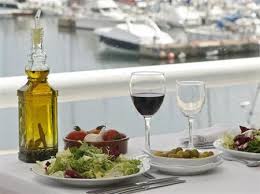A significant component of the Mediterranean Diet, with essential role in any social event and family feast, the wine has many symbolic roles. This alcoholic drink, which is a product of grape fermentation has managed to stay intact through cultural, religious and commercial frontiers, unfolding its intoxicating aroma and rich taste hidden in it.
Historically, the first vineyards showed up in Polar Regions (Iceland) and then in warmer zones (Messopotamia). The Persians are considered to be the first winegrowers.
Good wine is worth it!
Some of the most common questions asked in regards to wine are:
- What happens with aged wine?
- What is the process in order to get a mature and aged wine?
- Is it a “living” organism and, if it is, what is the perfect age?
- Is time ‘a friend’ of wine?
It is generally acceptable that wine gets better and improves its ‘character’ as it gets older. However, all kinds of wine don’t have the same life duration. As a result, each type of wine is better enjoyed in a different age, as it evolves with time, through different, constant and complex chemical processes.
Thus, one should ensure its slow but also controlled oxidation. Therefore, for every wine there is an instant moment when it has the best organoleptic image: it is the ideal moment for consumption! The aging duration varies between several months to a few years. Very few wines have life duration of over 50 or 100 years, as most reach their qualitative climax within several years after their production.
Whether a wine can ‘elevate’ its properties through time depends on the grape variety, its color, the region it was cultivated, its production year and the vinification procedure. It should also have three basic traits: high alcohol concentration, high acidity and high sugar concentration.
The condensation of the fruit and the scents/aroma of the wine are very important in order to have a tasty and delectable wine.
Health benefits of wine
Hippocrates, the father of Medicine, was the first to acknowledge the beneficial properties of wine in our health, by using it as a medicine. However, the beneficial effect of wine is present only when it is consumed on a daily basis, alongside a meal and moderately: meaning up to 2 glasses of wine for men and 1 glass of wine for women.
This balanced consumption reduces the risk of cardiovascular episodes (up to 60%), of lung, prostate and upper digestive system cancer, while it improves stomach function. Moreover, it prevents the formation of gall stones, it improves fertility and blood circulation and it has antiseptic and anti-inflammatory action. Finally, moderate wine consumption can be related with well-being, good quality of life, longevity and smaller death risk by 10-20%.
Wine is a shield for osteoporosis
A glass of wine on a daily basis “builds” sturdy bones and reduces the risk of osteoporosis, according to a new British study. Researchers from King’s College in London studied the connection between nutrition and fracture risk and found out that moderate consumption of wine increase bone density in the spine and the femurs. These benefits are not connected with other alcoholic drinks, like beer or heavy liquors, according to the study which is published in “American Journal of Clinical Nutrition”.
Although the exact way that wine strengthens the bones is not known, previous studies suggest that its beneficial effect is, possibly, due to the polyphenols it contains. Polyphenols are chemical compounds found in the hull of the grapes, not in the alcohol.
A glass of wine a day keeps depression away!
Recent studies have shown that moderate wine consumption can also reduce depression risk. The study, which took place in Spain, revealed that people who consume moderate amounts of alcohol in general – 5 to 15 grams daily – were less likely to develop depression. Moreover, the ones who consumed a moderate amount of wine on a weekly basis – 2 to 5 small glasses weekly – seemed to have even lower risk for depression.
However, further findings suggest that wine consumption that exceeds 7 glasses per week could increase depression risk. The researchers add that the largest alcohol consumptions was attributed to men, as 88% of them drinks more than 15 grams of alcohol daily.
Recommended way of purchase and preservation
Reputable wines, according to their grape variety are the ones from Australia, USA and Germany, whereas according to their production region, the most known are the French, Greek, Spanish and Italian wines.
The ancient Greeks used to mix wine with water – one part wine, three parts water – while they had also found ways to cool and mature wine. They managed to mature wine, by placing it in clay pots called ‘’πιθάρια’’ in Greek, which were buried in the ground and sealed with plaster and resin.
Generally, wine has three enemies: light, heat and oxygen. So, if you want to mature a bottle of wine, you should make sure it is kept in an appropriately formed cellar. More specifically, the temperature should be steady; around 10-20οC and the humidity should be around 70-75% throughout the whole year. The lighting should be low and there shouldn’t be any intense odors, vibrations, noises or insects. Last but not least, the bottles should be tilted, in order for the cork to be kept wet.
Conclusion
Wine should always be consumed wisely and in moderation and alongside the Mediterranean diet, in order to constitute a truly unique experience of taste, joy and health.















{ 0 comments… add one now }